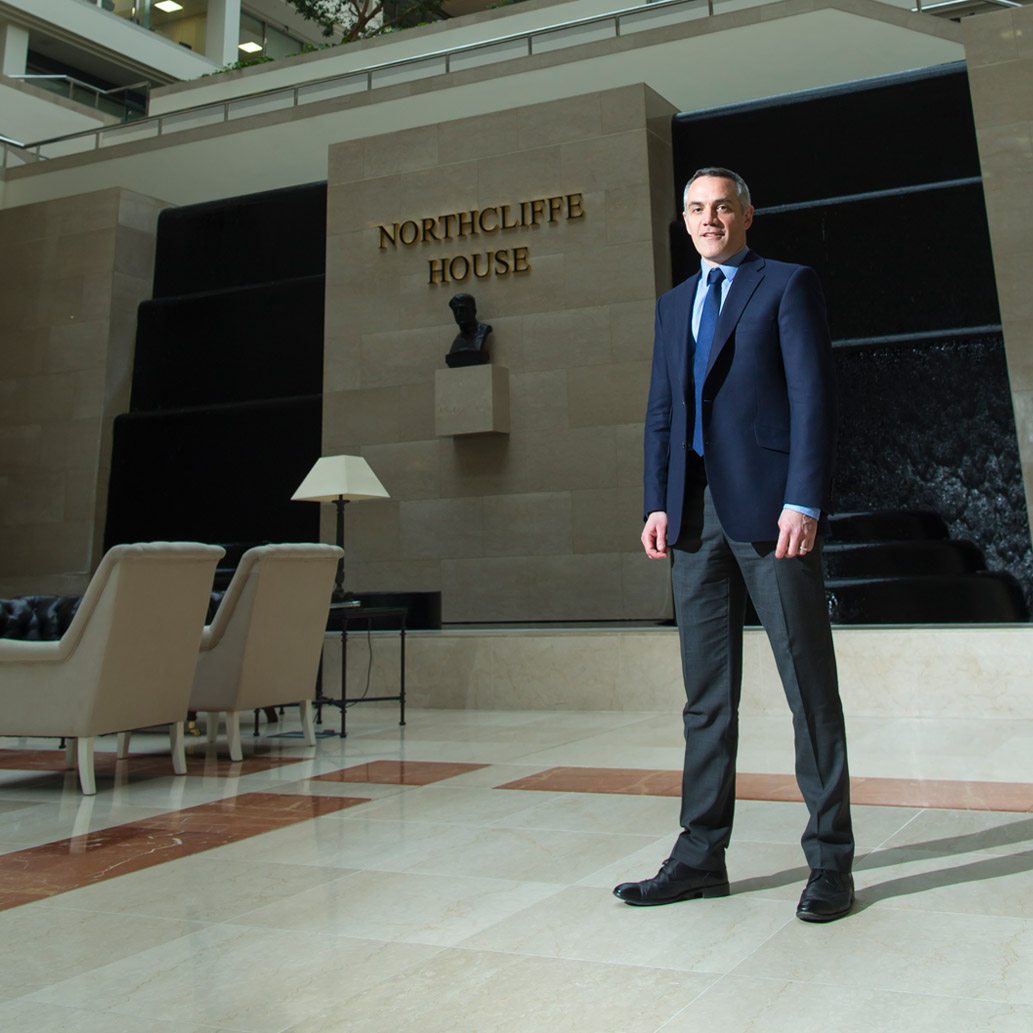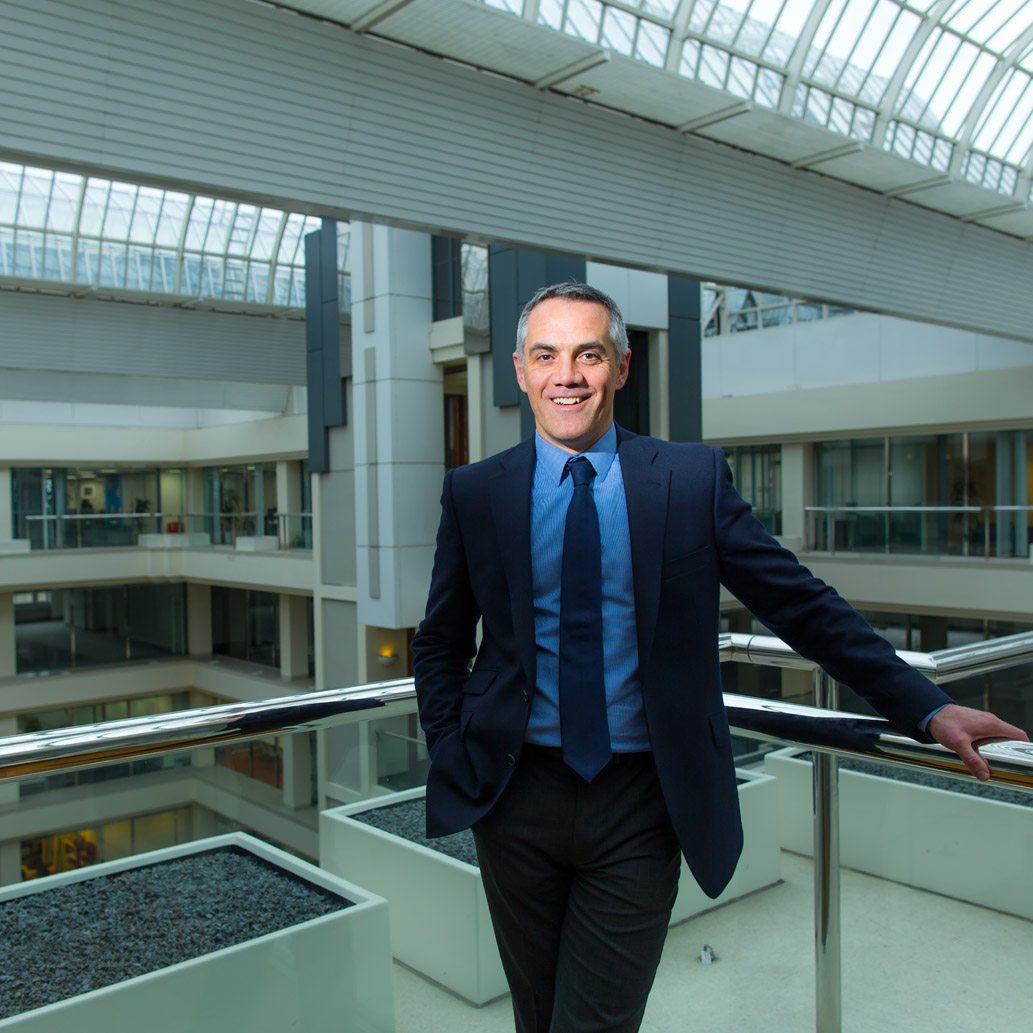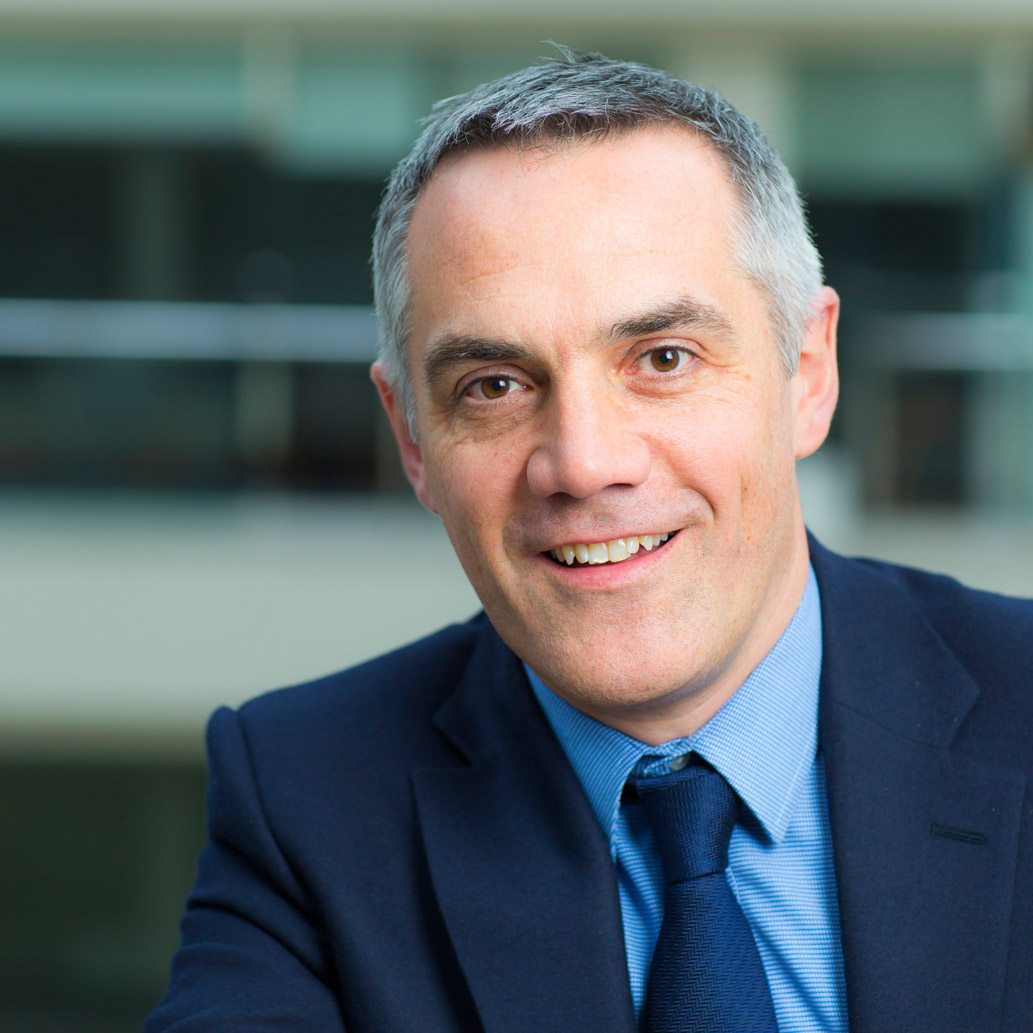Nathan tell us about your early life and why you decided on HR.
Preparing for this interview has given me pause to reflect on the last 20 years and how it all started. I know that, whilst I had a general goal for a corporate career, I confess that originally, I had no aspiration of pursuing a career in HR. I did an Applied Biology degree in Liverpool (LJMU) and, on graduating, I did what many people did at the time, which was getting on a general retail management graduate training scheme, which included many of the basic early HR practices, hiring, management of people and performance. Then, I remember my Dad showing me a job advert in The New Scientist about an organisation wanting a scientist to recruit other scientists, and so I gave it a go and was lucky enough to get the job. After this initial specialist start, my career quickly developed to a more generalist role. I then applied for a Personnel Officer role at British Sugar. It was in the ‘Silver Spoon’ FMCG part of the business and I recall during the interview they had a long list of role requirements and, as we got near the end of the list, I realised that apart from recruitment, I had no other knowledge or experience. I remember saying; “this isn’t going too well is it?” and I really didn’t expect to hear from them again. So I was surprised to be invited for a second interview, and even more surprised when they offered me the job in their head office supporting their central commercial and operations teams. It felt like I was thrashing around in the deep end but, a few months later, one of the site HR managers left and I was asked to step into this vacant role, which saw me taking up HR responsibility for two manufacturing sites.

That is a whirlwind early career, did you feel prepared for this?
At the time, I think the bravado of youth got me through, but considering the landscape, in retrospect, it was all quite amazing, and lucky. I was dealing with general HR issues for front-line staff in two unionised factories based in Bardney in Lincolnshire, and Newark in Nottinghamshire. Great people working really hard and it gave me a really solid grounding in ‘real life’. Two years went by in the blink of an eye and I was thinking “so far so good”, when a previous boss asked me about an opportunity to move back to work with her again at Elan Pharmaceuticals, a relatively small bio-tech with business across GPs and in hospitals. This had a European focus and I jumped at the chance to gain that international experience. Another two years passed and I saw an opportunity I just had to try for with PepsiCo, at Walkers Crisps, and I successfully got the role of Site HR Manager at Europe’s biggest snack plant in Coventry: home of the Dorito, among other things. It was a brand with a strong connection to my hometown of Leicester and I was keen to move into food manufacturing. The entire area was heavily unionised but the Coventry site wasn’t. The job was simple. Keep our employee relations agenda direct and open with our colleagues and support the plant leadership team’s development. Looking back, this was the point where I became a professionalised HR business practitioner. The role opened my eyes to the value of talent management, putting clear and simple process behind the challenge of keeping top talent engaged and moving forward. Outside of the day-to-day activities, I was buddied up with a high potential site leader, and given clear instruction to stick by and support him through his talent journey. His name was Gary Horsfield, and a pattern then emerged throughout the next four to five years at Pepsi-co, with me and Gary following each other through the business.
By way of example, two years in, I moved to head up HR in logistics and supply chain and Gary ended up heading Northern logistics, and, whilst there were other leaders to assist, we kept close and supported each other throughout that period. The phrase ‘demanding partner’ comes to mind as we mutually pushed each other with feedback and challenges throughout our respective career changes. The business then split into two: Walkers Crisps and Quaker/Tropicana, which was put into a separate business unit, and I was given the HR lead on the operating board for the second part of the business, and Gary popped up to lead the supply chain for that business unit at around the same time. Now I was charged with helping with team establishment, and designing our purpose and vision, in what was a heavily matrixed organisation. This was a real opportunity to do something from scratch, as the business had aspirations to be autonomous and separate, out from under the big Walkers Crisps shadow, so it was about forging team and brand identity with great products like Tropicana Juices, Quaker Oats, which were both growing into double digits, and Snack a Jacks. As I was heading to the five year point I had the choice of moving on to pastures new. By chance, an opportunity at B&Q came knocking and with it the chance to get back into retail with a business focused on capitalising on the rising trend of DIY.
As OD Director, this was my first proper non-generalist role and my focus was helping shape the HR agenda, across; Reward, ER, Communications and Engagement. The context was clearly different to PepsiCo UK head office with B&Q wanting to redefine the DIY landscape, and it was also an opportunity to make a real mark with HR, and join a leadership team making headlines on such things as the importance of recruiting older people. We also believed in the power of engagement surveys at scale and these were taken incredibly seriously. We used Gallup’s Q12 and the twelve questions acted as a strong compass to people leadership across our stores. It was linked strongly to store and manager performance. This link was continuously proven and re-proven as we surveyed the entire business every six months. I also had the opportunity to take responsibility for the 70-strong customer services team, my first foray into operational leadership.

From what you are describing, you can see the pieces of your career puzzle coming together to form a picture.
My first HR Director once remarked that there is no substitute for experience and in HR that is unquestionably true. As I described in my early career, you can be earmarked for rapid progression, but as I’ve learned along the way, there really is no substitute to doing the spade work and earning your stripes in different settings. When you are responsible for the livelihoods of nearly 40,000 people, as was the case at B&Q, you absolutely and categorically must have belief in your own convictions when making large scale decisions. The link between staff engagement and store performance is indelibly linked, but the day you pull back from making important decisions is the day you think it won’t work. Of course caring for the individual but making sure it’s right for the whole.

Tell us about your next move.
I was approached for a role at Morrisons, drove up to Bradford for an interview and arrived at its huge stone monolithic HQ. It was everything B&Q was, but with 130,000 employees, and a warm Yorkshire accent. What excited me most was the speed that the business needed to keep pace with competition and customer demand. Supermarkets epitomise a 24/7, never asleep organisation, and this one had an £18 billion turnover with all eyes on efficiencies. I joined in a centralised HR role as Head of OD and Talent, just as the business was moving away from an old personnel framework to modern, forward-looking HR, under new leadership. There was quite a bit of initial resistance to this change, as this was a business based on traditions and a proud heritage. There were detractors of course, but that’s nothing new. Our agenda became about making a few big plays like putting an Academy in place to celebrate the strong apprenticeship heritage and drive skills forward at the front line and truly measuring performance. It was all about modernising the business to compete in an ever-developing sector and my focus was on establishing a supporting people infrastructure with robust reward and performance frameworks, leadership development activities and change management processes.
I recall that at the time Tesco was swallowing up market share, and Morrisons, traditional Yorkshire culture needed to expand quickly to compete.
I joined a year or so after the Safeway integration was completed and part of my role was to help the business re-platform itself and scale-up to support a much larger and growing retail business. The tech-based challenge was huge in scale and required simple communications to engage the broader business. A little known fact is that Morrisons is very vertically integrated, it really does ‘buy, make, move and sell’, and after a short span in the centre, I was asked to take on the HR Director role across manufacturing. This division, with its bakeries, produce sites, sausage, pie and bacon making facilities, bouquet assembly plants and last, but not least, abattoirs, focused on forging and managing direct relationships with farmers markets and co-operatives. It was an incredibly powerful machine and it was really the thing that stood Morrisons apart from the market. Martyn Fletcher, the Group Manufacturing Director, knew he could drive the business harder and strengthen the team. This became my role to support and lead the people aspects of this challenge. By way of example, the operation was about seven layers from top to bottom in that division, and here I utilised one of those operational learnings taken from PepsiCo giving fewer layers of stronger leadership real accountability. We ended up with four layers in most cases supported with effective practical performance management. These took the form of daily review meetings (DRM) around a balanced scorecard. People gathered around these DRM white boards and had performance review working sessions focused on KPIs, discussing what was working and what wasn’t working.
I’ve found that every organisational design change needs a focus. We focussed all our energies around the front line manager, for us the most important role. They managed the mass majority of our 15,000 people and so we put all our energy around that and transformed the culture into a more engaging, performance-focused one. We put 50 percent on our financial turnover through organic growth and acquisition and strengthened the core business all at the same time. This was achieved by having a clear plan and ruthlessly sticking to it as a leadership team. It was an incredibly strong and enjoyable few years. They liked what was happening across manufacturing and, whilst wanting this to continue, the CEO wanted the same across their supply chain. Double the size, double the fun. The challenge here was how to take the learnings from a successful approach whilst giving different leadership the chance to own the change and shape its design and implementation. Understanding and being seen to understand the different context was key to this. It was a much more heavily unionised environment, so you have to put your boots on, walk the floor and face tough negotiations and challenges with the likes of Unite. I had been doing the logistics supply chain role for a while and there was a period of leadership change, and then I got a tap on the shoulder from dmg media, the parent company of the Daily Mail.
By any estimations the differences between the two sectors are stark, did you wonder whether your experience set was a match for newsprint and online media?
The great thing about HR is it’s a transferable skill, once you’ve gathered sufficient learning and knowledge. I’ve always been ambitious and a big part of that ambition is a desire for new experiences and, if you look at my career, I’ve never ploughed the same furrow. For sure, I had never worked in media or publishing or in London for that matter, but at my interview, there was something about the scale and reach of this business that really intrigued me. It would be the first time I would ever work in a company in which I could get to know everybody and, like Morrisons was one that’s going through huge positive transformation. It has a strong heritage, with a very strong family link, and as a family man, that chimed with me too. The care this business shows about its people and long term future is unparalleled.
I joined as Group HR Director on 1st January 2014 just as the organisation was undergoing a massive transformation from a strong newspaper publisher and broadening into a leading multi-channel consumer media company with a portfolio that now includes Daily Mail, The Mail on Sunday, MailOnline, Metro and Elite Daily. I had the feeling that they were looking to get going fast. Time was of the essence, so first up were lots of conversations across the organisation. Top of the agenda was about the attraction and retention of top leadership talent and getting the organisation set for the next stage of its transformation. The story is about maintaining the print business in a declining market, and the investment and build required to continue the digital phenomenon that is MailOnline. Here, one of the benefits of our ownership structure is that we can take a longer view of investment, backed up by the consistent nature of the printed media. But we do have to be mindful that dmg media’s future must not be curtailed by barriers. We are no longer solely a British newspaper publisher but a global organisation of considerable influence and scale, so it’s about making sure we have the right skills in place, and, of course, another key task for me is to deliver an HR function that is up to the task and future ready, and this I find very exciting indeed, because it is the first time in my career that I am fully responsible for driving that forward. I think simplicity is key here. I want a function that is relevant and ready to listen to what the business wants, take responsibility and deliver value back.
There is a certain inevitability that digital will someday supersede paper, how do you think this transition will be most effectively managed?
The newspaper industry has many challenges ahead, but can you name me a sector that doesn’t? By way of example, the food industry is busily tackling the challenge of obesity and the DIY market is contending with the dual issues of online competition and the local handyman doing it better. It’s how you respond to those challenges that matters. People say print will decline forever, but I’m not sure about that at all, particularly with the strength of our brands – The Mail on Sunday, for instance, has just been named Newspaper of the Year. And, while online is booming with MailOnline and its astonishing visitor numbers. The experience of holding a paper on the way to work, or relaxing at home is, happily, a hard habit to break. So we are a sharp organisation that is responding to market changes, and doing extremely well in both our print and digital areas.
Are you finding it easy to attract people into the business?
Across in Editorial, more graduates are recruited through the journalist scheme than in any other media business, and we have some very senior people in the organisation who have come through that. This is by far and away the best journalist development scheme in the world, and full credit to its leadership. Our commercial graduates are increasingly the fuel that is going to drive the long term success across all of our assets. There’s a lot of talk about the war for talent and that is the case in this sector, but we have some excellent relationships with some universities and it helps that we have strong brands behind us. Poaching talent is rife in this industry, but obviously we prefer to take a more strategic long-term approach to resourcing. Certainly, we fill empty chairs when they come, and if there is a need for short term fix, you have to go out in the market. We will do this whilst looking at the medium-term point of view. We have created an Academy to develop a stronger sense of career here, coupled with a clear skills curriculum to give people the ability to reach their full potential. We are plugging in new technologies to make it easier for line managers to manage and for individuals who want to take ownership of their futures. We constantly keep an eye on churn, you can never be complacent and you have to be mindful of the long term pipeline.
How do you think the business will change in the future and will the organisation expand?
DMG media has a very entrepreneurial mind-set and I see our growth continuing both organically and acquisitively in the future. Alongside our world class brands, we’ve enjoyed great success with our involvement in Zoopla and Wowcher and only last year bought Elite Daily a Gen Y site in New York, which is going great guns. The constantly changing and growing nature of the business is what makes the future so exciting. And, this time next year, we’ll be different again.
You have had a very diverse career, and that seems to have been about not taking the easy option. How do you sum it up so far.
. I remember an old boss of mine asking me whether I would rather be a wartime General or a peace-time General. The answer to me is obvious, and my whole career has been about taking on tough challenges. That’s what has kept me going in HR – the change, the volatility, the unpredictability, and with HR, you can pick your bag up and experience wide and varied things. My real passion is helping to drive business performance using all available levers. This business is performing very well and if previous performances predict the future, then we are in a good place and set up for a very exciting time indeed. Watch this space and “read all about it!”












